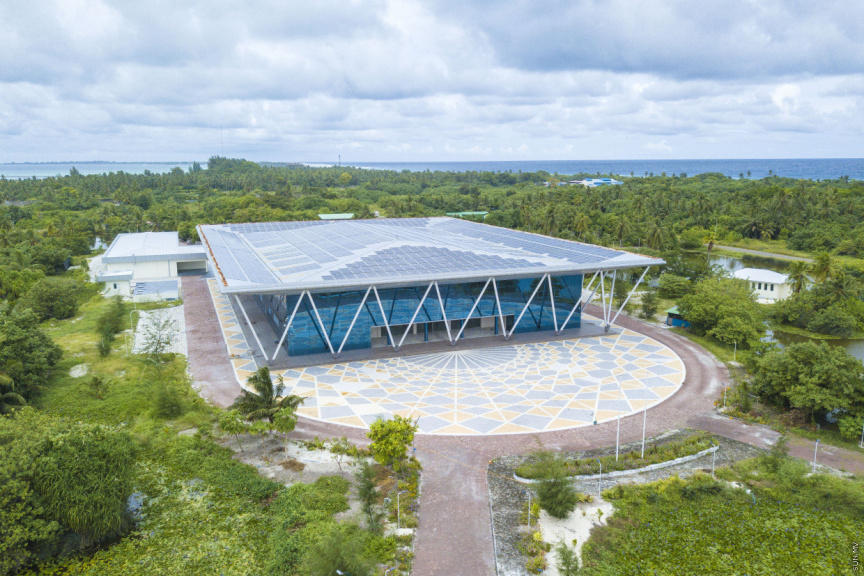
Addu Equatorial Hospital. (File Photo/Sun/Fayaz Moosa)
The Maldivian administration has unveiled its strategic action plan for the next five years which includes several key goals for the development of the national health sector.
SAP 2019-2023 was unveiled last Wednesday evening and includes the Maldivian administration’s targets and priorities across all sectors for the next five years.
It establishes promoting and advocating a healthy lifestyle with a key focus on primary healthcare and preventive care, strengthening safe motherhood and child health and nutrition programs, enforcing an appropriate quality assurance and regulatory framework to ensure patient and provider safety, provide access to affordable, all-inclusive and quality health care services, strengthen health care management and modernize services through ICT and strengthen health sector response in emergencies as key priorities.
HEALTHCARE TARGETS:
While the administration plans on opening five tertiary hospitals in the country by 2023, the construction of one tertiary hospital – the Addu Equatorial Hospital – is now complete, and the hospital is scheduled to open later this year.
Meanwhile, the construction of the Kulhudhuffushi Hospital – originally planned for development as a tertiary hospital by the previous administration – is currently stalled, and the Health Minister Abdulla Ameen has recently announced plans to develop tertiary hospitals in Naifaru and Thinadhoo, and to upgrade 10 more hospitals.
The Maldivian administration, in the SAP, also highlighted the challenges facing the Maldivian health sector.
Chief challenges noted includes; centralization of health services, weak and inadequate regulatory mechanisms including poor enforcement of regulatory functions, limited capacity for quality assurance related to food, medicine and health services, poor inter-sectoral cooperation and coordination for health, lack of cohesion in the roles and responsibilities of government institutions on cross cutting issues, lack of effective policies and plans related to healthy aging and migrant health, leakages and wastages in the medical supplies and logistics management system and proliferation of alternative forms of medicine practices, and lack of adequate mental health services.